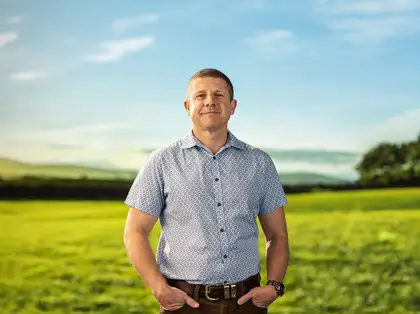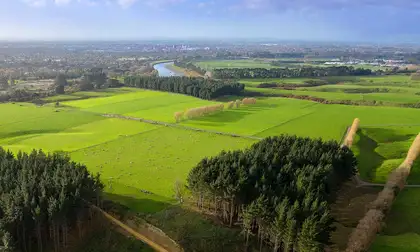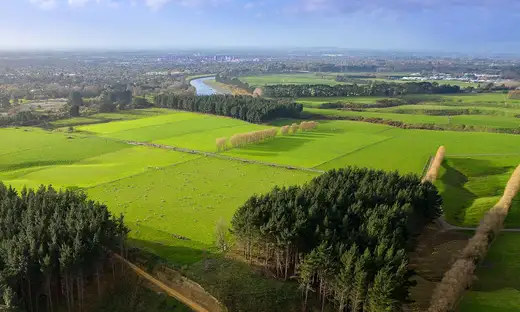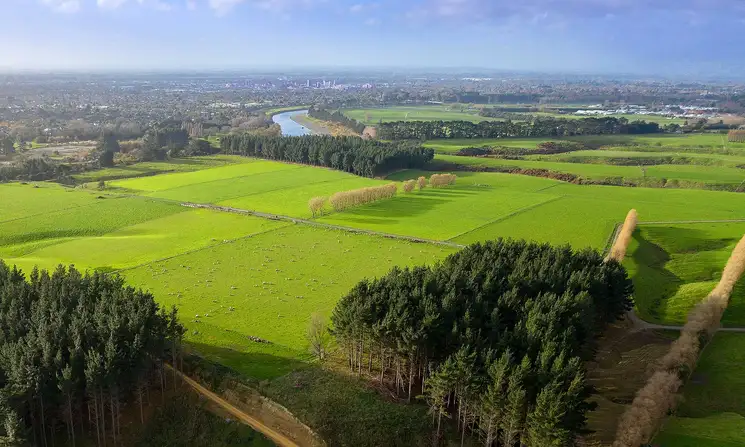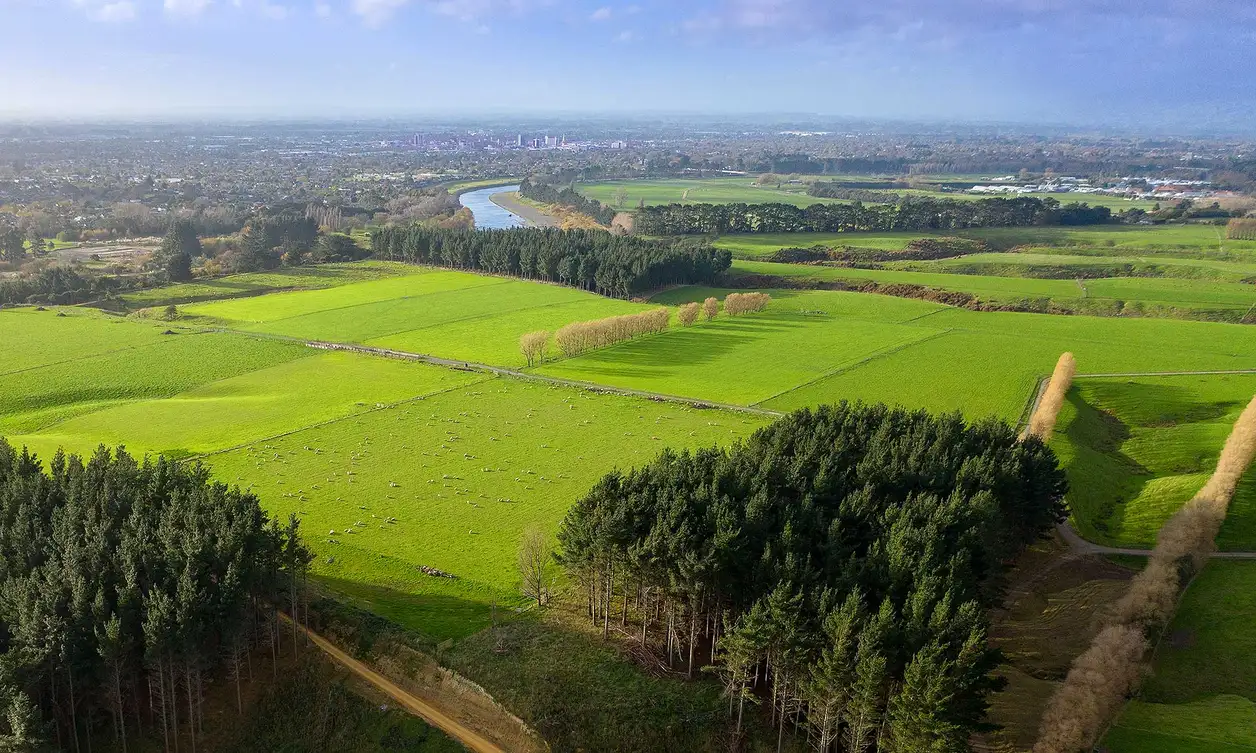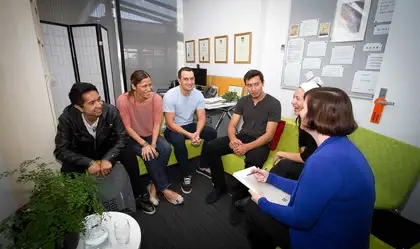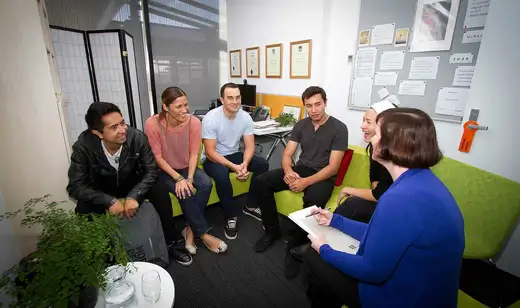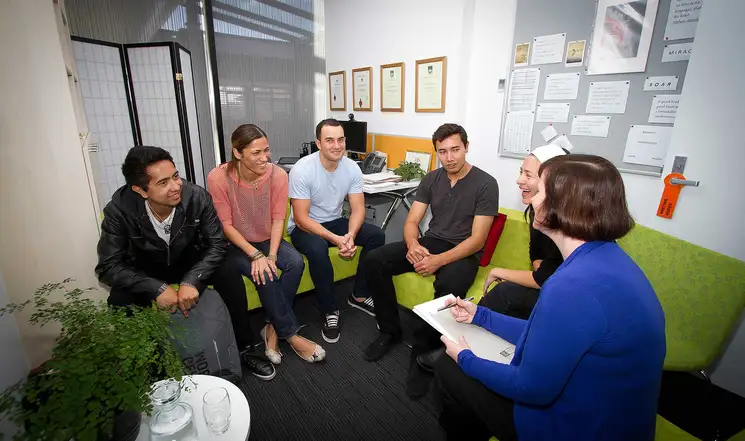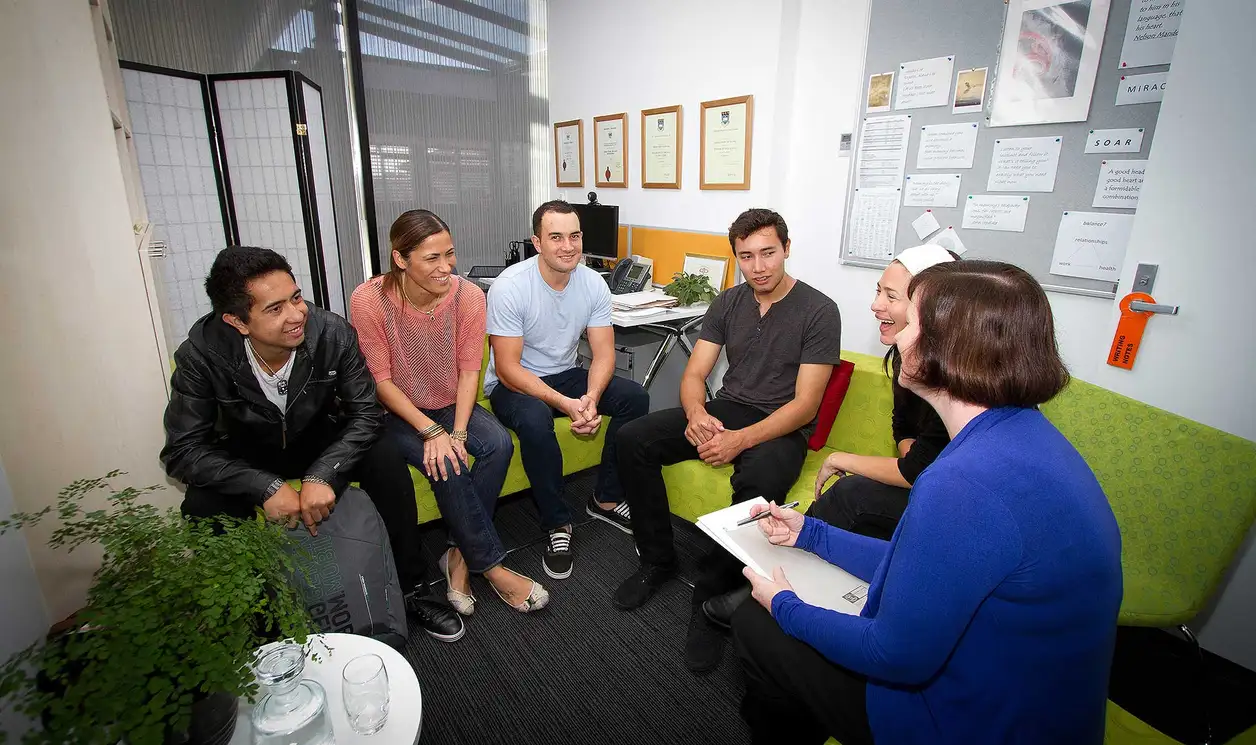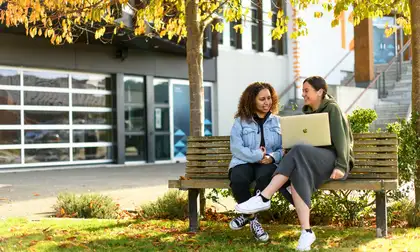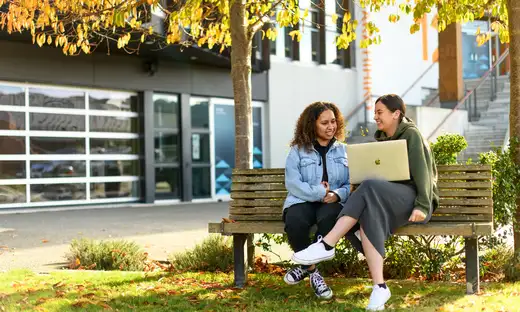Tēnā koe Paul! We’ve been lucky enough to have you as part of the Massey whānau for quite some time. What led you to study and then teach with us?
I’ve been here since the early 90s as an 18-year-old student wanting to be a stock agent, turning to agricultural science for undergrad. I gained all my qualifications through Massey – right up until I completed my PhD while a staff member and am now the Head of School.
I enjoyed my educational experience, it was a good mix of theory and hands-on practical learning. Massey has a great name in agriculture; it's got great resources in terms of farms and orchards right here on campus. I’m a researcher and an academic, so it's got great facilities for that.
As you say, our lecturers are innovating, they're working in the field, they're hands-on. How do you juggle lecturing and research?
We work very team-based, and we’re a very productive team. The team was acknowledged as the leading team in pastoral-based sheep production research in New Zealand – if not Australasia.
Where does Massey fit in accreditation and ranking?
Massey is ranked, I think, 75th equal in the world for the Times Higher Education Impact Rankings, which measure global universities successes in delivering on the United Nations Sustainable Development Goals. So, with the 75th equal rank, we’re ranked second in New Zealand. Some categories we rank highly are food production and minimal impacts on our waterways. Massey’s three top SDGs are SDG11: Sustainable Cities and Communities (5th), SDG15: Life on Land (12th equal) and SDG2: Zero Hunger (13th). Due to the type of research we're doing and what we teach. So, it's very much about what we do to improve productivity on our farms, orchards, etc., but we have to do that responsibly and sustainably because there's no extra land.
For someone who may not be familiar with research, what dictates that? Does your research focus on what interests you personally, or do industry needs drive your research topics?
The door swings both ways there. We do some economic modelling to say this is what appears to be driving productivity and profitability, so that's where the farmers need to be improving. And then, we try to design research that allows for improvements in those areas.
Alternatively, because we've delivered over a long time, the industry comes to us and says we want to work in this area, can you do that research for us?
Compared to 2010, the United Nations has worked out we need to increase food production by 56% by 2050, and that requires agriculture and horticulture because the human population is going up.
We need to help farmers, orchardists, and vegetable growers increase productivity, but we've got to do that sustainably so we don't impact the environment negatively.
We need more food, whether that's animal-based protein or plant-based protein. And when the SDGs talk about having no hunger and no poverty, agriculture and horticulture play a huge part.
Working so closely with industry, how does this translate to employment opportunities for your students?
As Head of School, I routinely get asked, ‘Have you got any more graduates? Because we're employing more people.’ You don't come and study just sheep as your degree – you're doing agriculture. So you're doing a bit on soils, a bit on plants, a bit on animals. Throughout our whole department and school, we have strong links with industry, allowing students to have employment opportunities.
Our future graduates are getting employed well before they finish their studies and into very good, well-paying jobs. The industry is coming to the School of Agriculture and Environment, saying they need more people. It's just about letting young people understand the opportunities there.
Are you also contacted by international industry?
Domestic and international, yes! For instance, there are companies in Australia, and Australia has, I think, 8 universities that do agriculture. They can't get enough graduates there, so they recruit ours too. So, when you learn about agriculture and horticulture, it's similar worldwide. You might have to change the production system slightly, but the skillsets and knowledge are easily transferable.
And you personally, do you love what you’re doing?
Oh yeah. I suppose I could get a job anywhere in the world, right? But because of the resources, facilities, great people I work with and the students, there's nowhere else I want to go.
This is my third term as Head of School. I was head of the unit that included the veterinary school, for a time. But I have no desire for employment elsewhere because everything I need and want is here.
Massey has a very down-to-earth culture. Have you experienced that and how do you try and ensure that your students experience this culture?
Our staff are very approachable and friendly – they all have passion for their disciplines. They enjoy teaching, it's an enjoyable work environment, and we don't have a large staff turnover. It's a durable work environment because of our resources and facilities. The staff enjoy working here. Agriculture, even though I say there is huge demand, it has relatively small classes. And therefore, you get to know everyone in your class. You get that real community team feel – an environment that our students find enjoyable.
